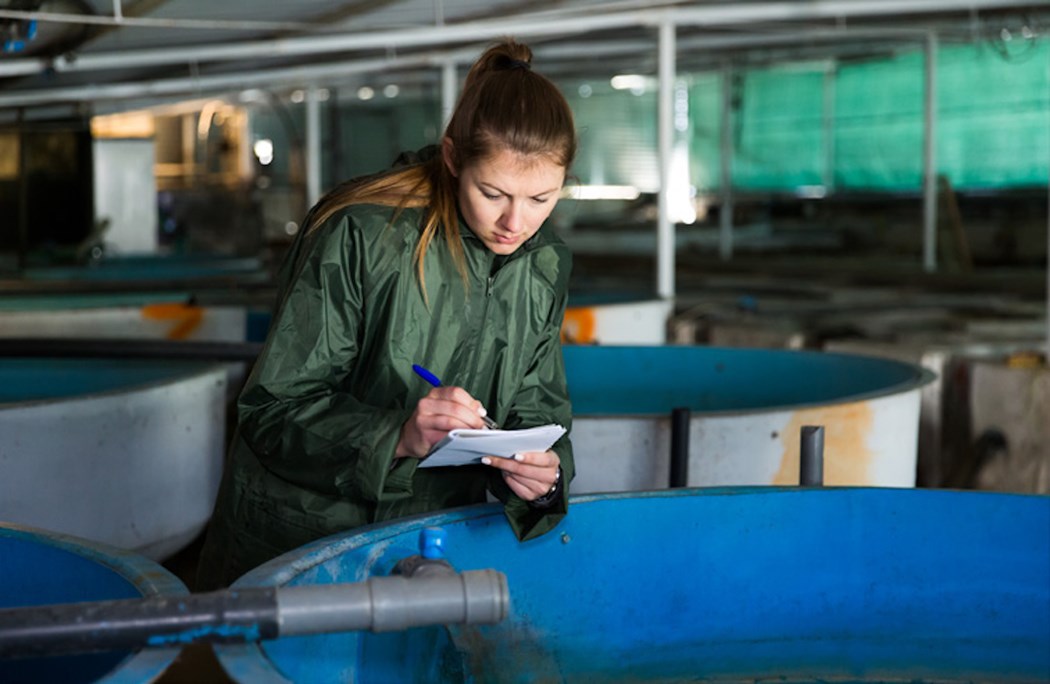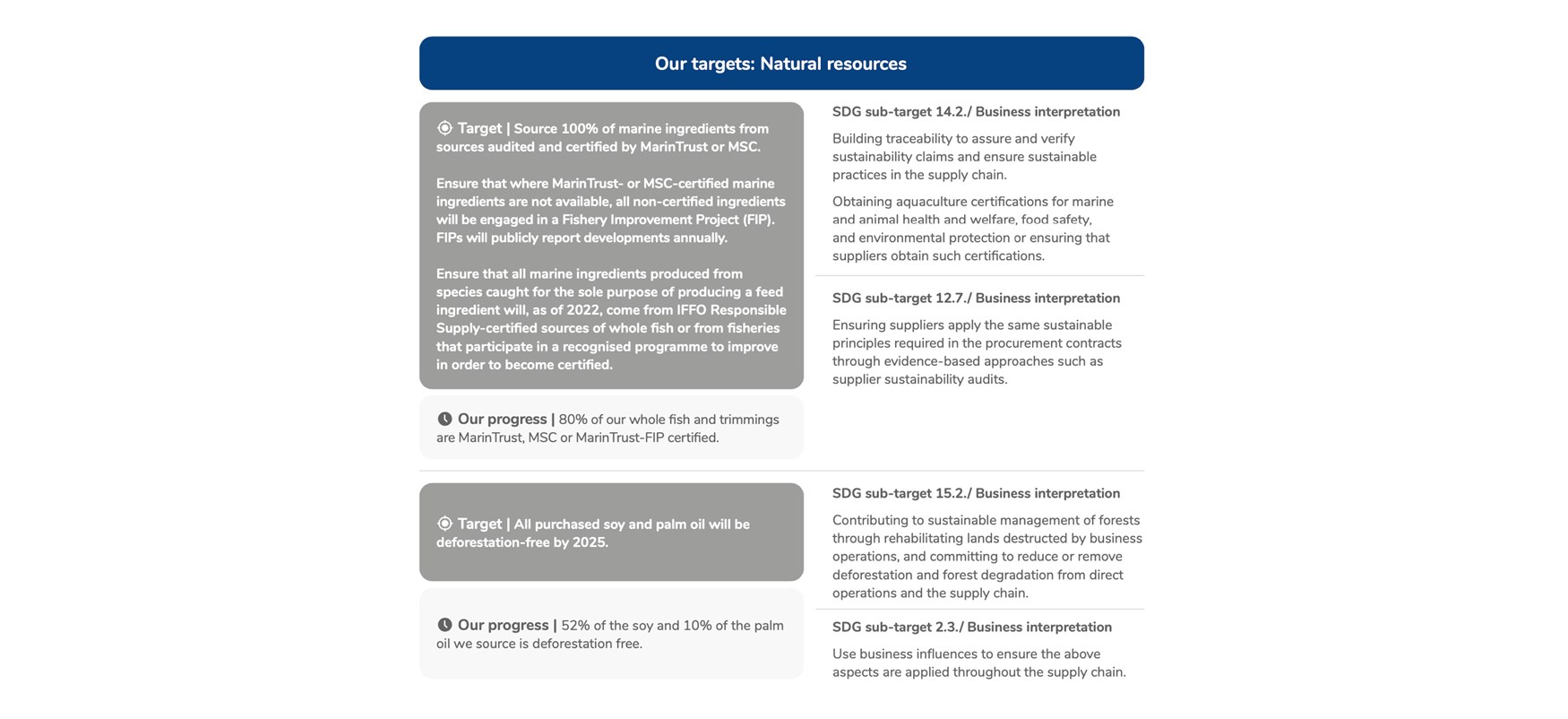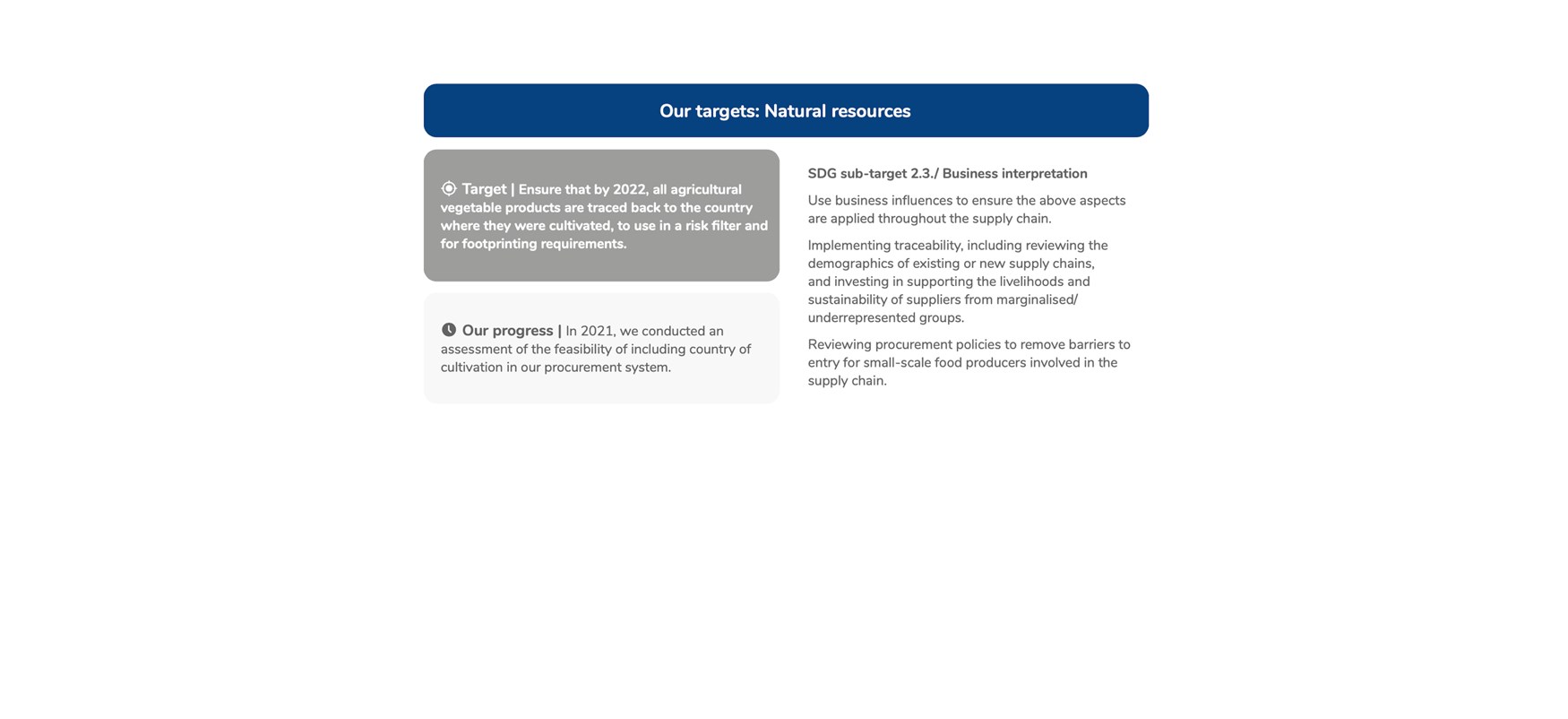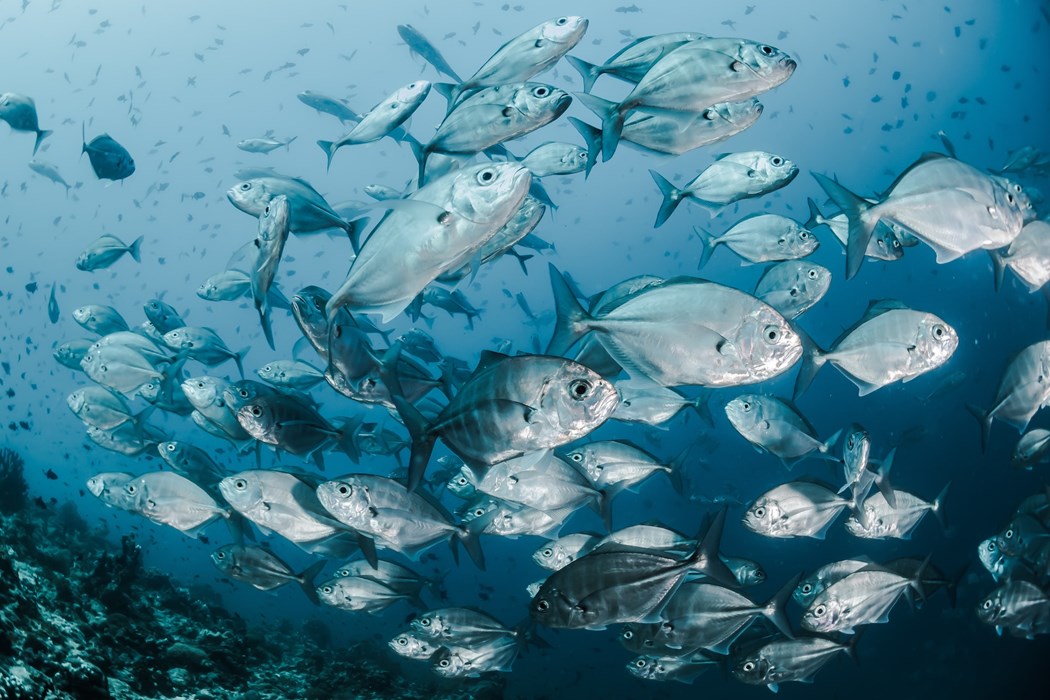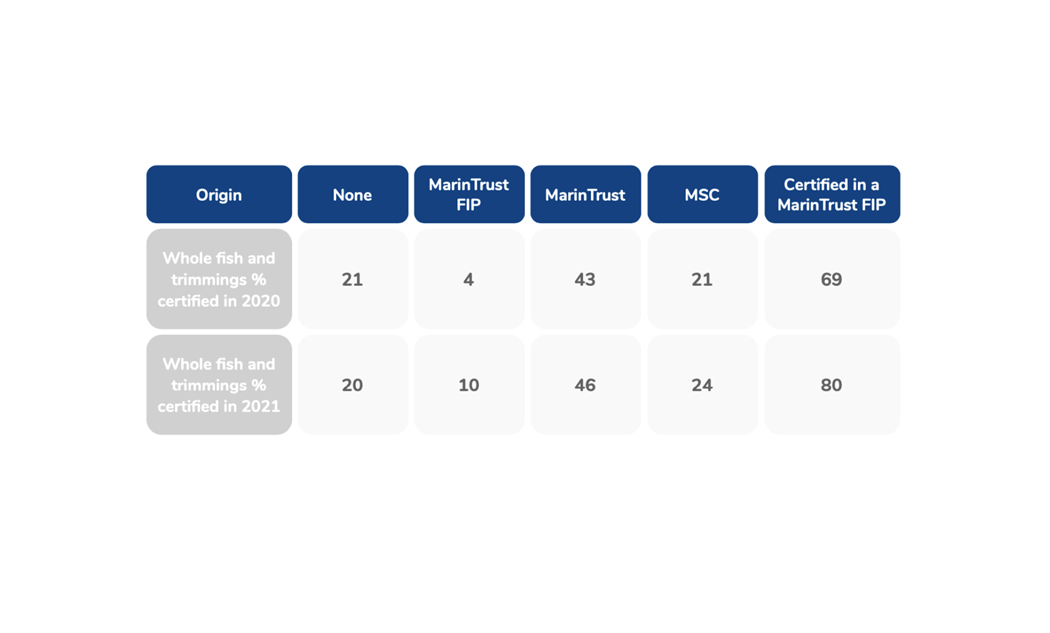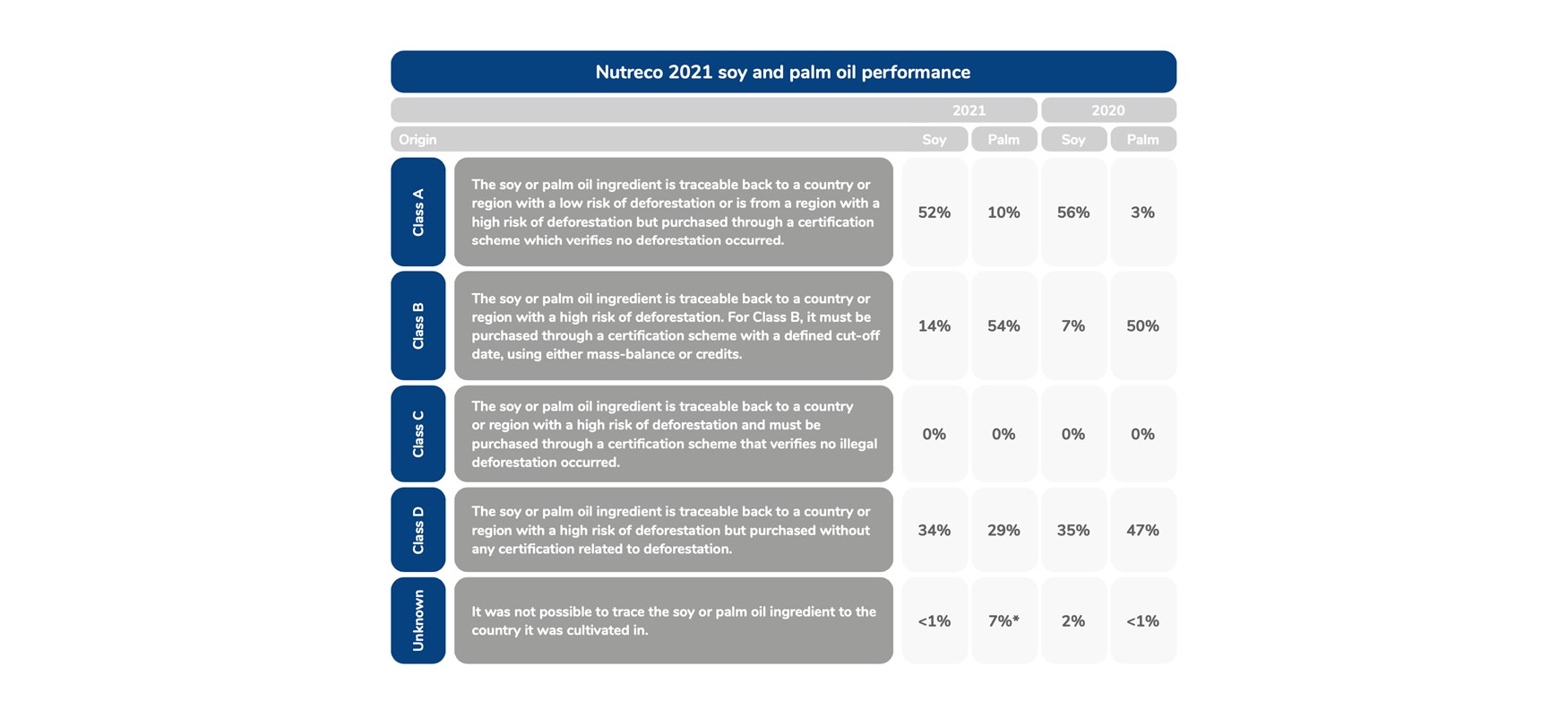SDG sub-target 15.2 and 14.2: Contribute to sustainable forest management and obtaining aquaculture certifications
Through RoadMap 2025, we strive to ensure that our palm, soy, and marine feed ingredients come from sustainable sources. For these ingredients, certification schemes and standards are numerous and provide a variety of assurances. However, certification is a tool, not a means to an end.
These assurances vary per certification and are continuously evolving to reflect increased knowledge and ambition levels.
